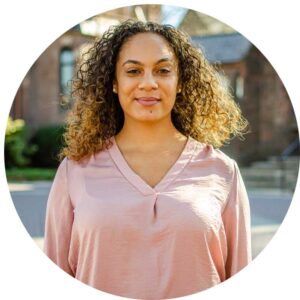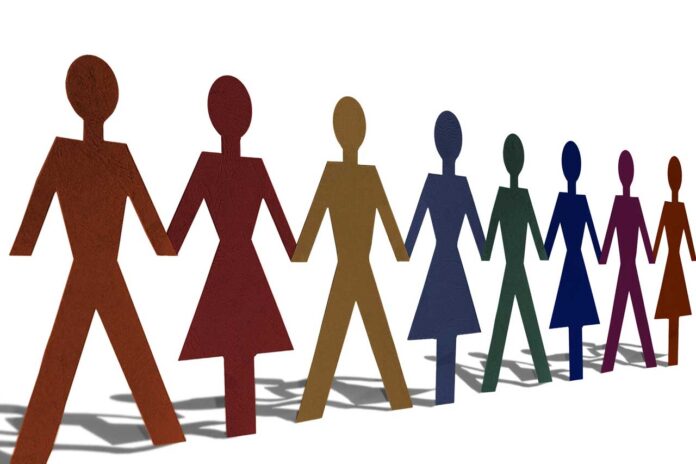As I begin thinking about my journey in higher education, shared community is one of the key components that stands out. A community can be defined as a group of people with a shared interest – including professional and personal interests.
My community wasn’t always the same. Although my identity comprises many intersectionalities, I always gravitated towards a group that felt like home – even if I was already close to home. New Jersey isn’t a big state, but it is also not the smallest, and yet no matter where I worked and what space I took up, I always looked for a space of belonging.
In my first professional position within fraternity and sorority life, I quickly realized the importance of finding one’s community. Nervous and suffering from imposter syndrome, I allowed negative thoughts to fill my head and hurt my ability to be my authentic self. I was a shy, timid new staff member who had to work with 18-22-year-olds who were opinionated and strong-minded. As you can imagine, that didn’t work out well – except in one-on-one settings with student leaders. I learned rather quickly how I could impact their lives because I was part of THEIR community. I just needed to identify my own community to help and support me when I reverted to negative thoughts and suffered from that pesky imposter syndrome.
In student affairs graduate programs, students typically learn about student development theorists – Chickering, Scholossberg, Perry, Holland, etc. And while I thought about classic theories and how I would identify students in their development, it dawned on me – I, TOO, was developing. Was I back in Chickering’s Seven Vectors? Re-establishing my identity and who I was as a professional? Developing what my purpose was in my career? But was I also falling into Scholossberg’s Transition Theory? Navigating the Self while identifying the Support needed for me in my transition in my newfound journey? These were questions that I asked myself several months into my role, re-establishing a strong bond between my colleagues and connecting with other campus partners – essentially affirming my community.
After an aha moment, I quickly realized I was not on this journey alone. I leaned on colleagues, leaned into professional development, networked, and stepped out of my comfort zone to identify who my community was. This community got me through long days (AKA often typical work hours for a student affairs professional), challenging situations – whether with a supervisor, colleague, or student, and helped me find my voice again. My community hugged me when there were tears, cheered for me when there were accomplishments, and provided conversations when a change in perspective was all a situation called for.
You see, you don’t get to be successful alone, whether you’re an office of one or four, a new professional, or seasoned in the fraternity/sorority world. You don’t get through this work alone. Sometimes it may be easier to silo yourself as some were taught to keep their head down and hustle through. In order to make an impact and truly develop students and communities, you need the helping hand and support from your community – whether on campus or far away. We all go into this work seeing many of the same struggles on college campuses in their FSL communities. There’s always a lack of unity – or the magical unicorn, as I would call it – and as professionals, we emphasize that they’re stronger in numbers. Look at that – pot calling the kettle black – we as professionals, whether campus-based or inter/national staff, are stronger together. So find that community to uplift your voice and your work – not just for the students, but for you and your personal/professional development. You’ll thank yourself later.
About the author:
 Jessica Snell, an advocate for Culturally Based Fraternal Organizations (CBFOs), has worked as a campus professional in fraternity and sorority life in the northeast region for eight years. A member of Lambda Tau Omega Sorority, Incorporated – Jessica’s passion for multiculturalism and mentorship has continued to fuel her work. A native of New Jersey and a graduate of William Paterson University, she has recently taken the role of Associate Director for Fraternity & Sorority Life at Johns Hopkins University in Baltimore, MD.
Jessica Snell, an advocate for Culturally Based Fraternal Organizations (CBFOs), has worked as a campus professional in fraternity and sorority life in the northeast region for eight years. A member of Lambda Tau Omega Sorority, Incorporated – Jessica’s passion for multiculturalism and mentorship has continued to fuel her work. A native of New Jersey and a graduate of William Paterson University, she has recently taken the role of Associate Director for Fraternity & Sorority Life at Johns Hopkins University in Baltimore, MD.




